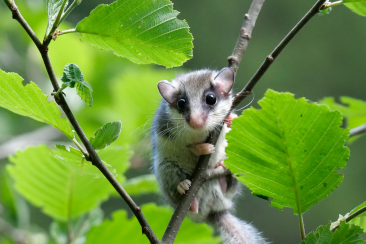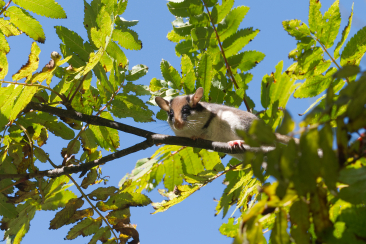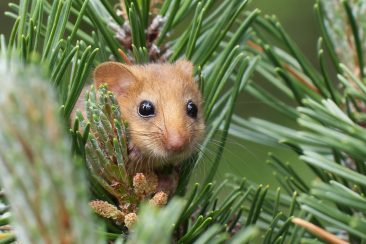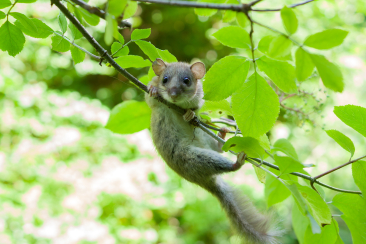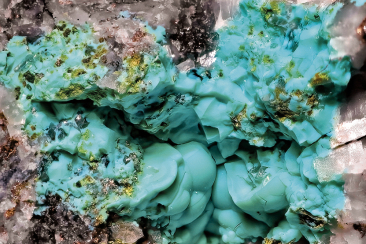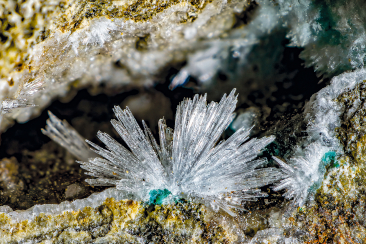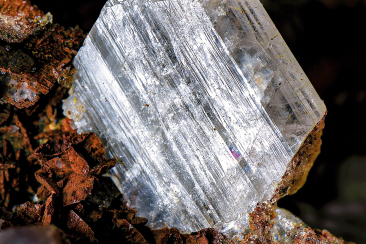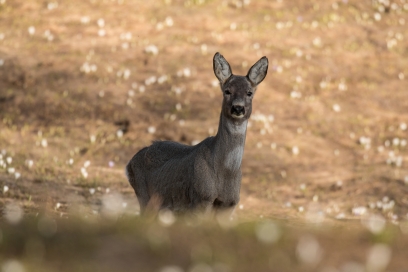What's new?
Current research projects
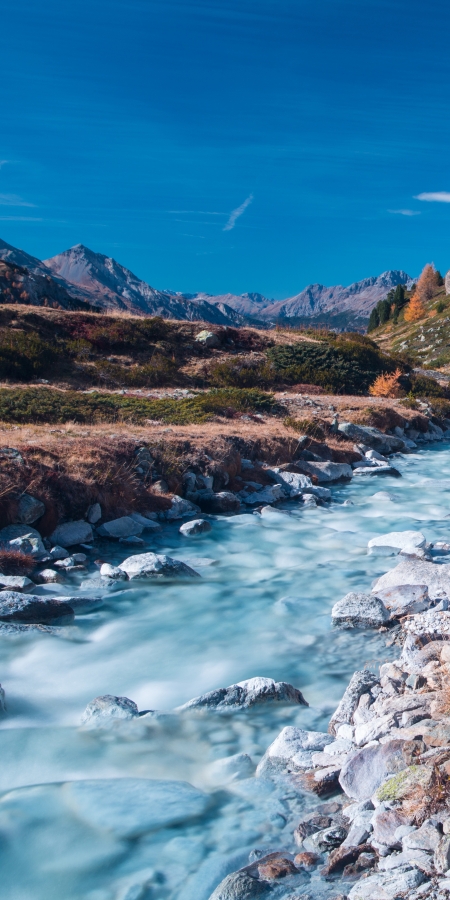
The tree dormouse & Co in the Terra Raetica
The tree dormouse (Dryomys nitedula) is a rare, strictly protected small mammal whose westernmost distribution area is in the Terra Raetica. A preliminary study from 2020 to 2022 showed that this species uses various habitats between 800 m and 2,200 m in the Eastern Alps and has a high ecological adaptability.
The project ‘The tree dormouse & Co in the Terra Raetica’ is investigating its biology (diet, habitat, activity rhythm, population biology) in the UNESCO Biosfera Engiadina Val Müstair/ Biosfera Val Müstair Nature Park, the Ötztal Nature Park and the Stelvio National Park. The aim is to develop cross-border conservation measures. From 2027, an exhibition will be on display in Val Müstair presenting the tree dormouse and other dormouse species (dormice) such as the garden dormouse, the dormouse and the hazel dormouse and raising awareness of their concerns.
Little gems of a hidden world
Val Müstair is not exactly known for its wealth of minerals, and yet Edy Romani from the Mineral Museum in Bormio has made numerous impressive finds over the last few years. These are less impressive for their size than for their particular beauty. In a new publication by Edy Romani and Fabrizio Berra, these finds are presented and described in high-resolution photographs. The book is available for CHF 38 from the monastery shop in Müstair and from the guest information centre in Tschierv.
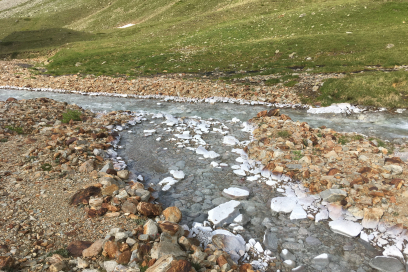
White-coloured stream in Val Costainas
Since the year 2000, white-coloured stones have been found in the bed of the Aua da Prasüra stream in Val Costainas above Sta. Maria. This phenomenon has already been observed in some high-altitude mountain streams in the Eastern Alps. The colour comes from flakes of aluminium sulphate that are deposited on the stones. The formation of the flakes is due to the production of sulphuric acid in permafrost areas. It is therefore possible that the water quality of the affected mountain streams will deteriorate in the future due to global warming. The study of the Aua da Prasüra in Val Costainas and additional laboratory experiments should help to better assess future developments.
